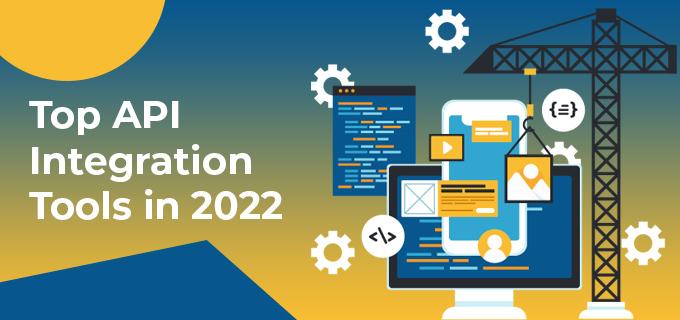
Python is a programming language that’s easy to learn, powerful and versatile. Combined with these benefits, python is used for automation testing and is considered to be an important element of software development. It’s used to test a program by simulating how it would be used in the real world or environment. This can be done by writing scripts that run on the computer and simulating user actions with a human tester’s help.
Developers and testers can write program codes to automate a particular test or series of tests while developing a software. They can even make changes to the code based on new requirements, run the program with those changes and then compare the final results. If a test fails, the automation feature can then go back and edit the program to fix any problem or bug in the software.
What Is Automation Testing Using Python?
Automated testing is a type of software testing that uses specialised software tools to automate the process of executing test cases or test scripts against components, systems or applications. Automation can be used to find bugs in software but also gain insight into how the software behaves in order to improve its design.
It mostly includes the process of running a test suite against a system or application to verify that the software meets its requirements. Automation testing is used to ensure that software systems can be tested in an efficient manner. Oftentimes, this means automating manual tasks so that they can be done reliably and consistently.
Python is a popular programming language used to automate these sorts of tasks because it’s easy to use and has plenty of built-in functions for performing simple tasks, like data input and output. It also has a powerful library called Pytest that makes writing automated tests simple.
Automation testing is useful for ensuring that your system will function properly in the face of changing conditions or new features. It also allows you to test different parts of your application in isolation so that if something goes wrong, it doesn’t affect other parts of your system. It requires only limited human intervention in running tests on a system in a repeatable, consistent and predictable manner. Humans or manual testers will only have to verify if the test automation has met the initial client requirements. Test automation services is an important method for both developers and testers, who can use it to verify whether their work meets expectations and whether their work has been done correctly.
Benefits of using Python-based Automation Testing
Python is a popular programming language that can be used to build scripts and automate testing. It is also one of the most popular programming languages used in the field of artificial intelligence.
The benefits of Python-based automation testing are many. They include:
- High-level of abstraction.
Simple and powerful coding.
Easy to learn and use.
Flexible to meet different requirements and challenges.
Python is a high-level language that is easy to learn, write and read.
A simple and intuitive language to write test cases. Python is a popular programming language and a great tool for writing automation tests. It’s easy to learn and use, which makes it ideal for novice programmers as well as professionals.
The ability to write complex scripts that are easy to read and understand by beginners. Python has an elegant syntax and structure, which makes it easy for new programmers to understand the code they are writing. This is especially helpful when you’re developing your automation scripts, as it makes them more readable by other developers on your team or in the broader industry.
The ability to create reusable modules that can be reused across projects, teams or organisations. Automation testing can be used in different contexts, such as developing web applications, mobile applications or web services that need testing or maintenance in order to provide optimal performance or stability.
The ability to leverage existing libraries and frameworks that already exist within your organisation or industry space (such as Selenium). Selenium is one of the most popular open-source frameworks available today for automating browser-based systems such as websites and mobile applications using real browsers instead of emulators like Appium or PhantomJS
The ability to write scripts in a short-hand way. This makes it easy for non-programmers to understand and use them.
The ability to integrate with other software applications. You can use Python to control an application or integrate it with other applications such as databases or mobile applications.
It’s free! If you want to learn how to develop scripts for automation testing, then Python is a good place to start. There are many tutorials available on the Internet on how Python works and how developers can effectively implement it in their projects.
Python is easy to learn because it has fewer keywords than other programming languages. This makes it easier for programmers to understand the code that they write.
Python also has a large community of developers who are willing to help you with your project so that you can get started faster.
Python Testing Frameworks For Automation Testing
Automation testing is the process of running automated scripts on the application or software under test. This makes it possible to automate testing by using a script to run through each step of the application or software from start to finish. Automation testing is one of the most important aspects of DevOps because it allows you to run automated tests on your applications more frequently and at faster speeds than was previously possible with manual testing.
Python is one of the most popular programming languages for testing. Developers use it to write and modify applications. Automation testing has become a very important part of software development, and Python is one of the most popular programming languages that can be used in automation tests.
There are a lot of frameworks out there, and they all have their own strengths and weaknesses. To help you make the best decision, we’ve compiled a list of the top 3 Python testing frameworks for automation testing.
1. Capybara
Capybara is an excellent tool for web-based applications. Capybara has a wide range of features, making it suitable for many types of automated tests. You can test your code by simulating user interactions with the application or even by running Selenium commands from the console.
2. Selenium
Selenium is a Java-based open-source framework for web application testing. It’s a test automation tool that helps developers automate the tests they need to do on their websites.
It is widely used by web developers who want to automate their web application testing and has been around since 2004.
3. CherryPy
CherryPy is a Python framework written in C++ that allows you to easily build Web Applications quickly and easily. It works with SQL, XML, JDBC, and other database types.
CherryPy is also used for building web applications with databases and performing AJAX requests from within your code.
What Are The Latest Automation Testing Tools That Are Easy to Use?
Conclusion
Python is an interpreted language that does not require compilation before running on your computer or server. This makes it easier for developers to develop programs without having to go through all the trouble of compiling their code into objects that the operating system can then execute. Therefore, more companies prefer python for testing over other languages like C++ or Java. Moreover, it has built-in libraries that allow you to easily access data from databases or other sources without having to write new code yourself!
Author Bio

Ricky Philip is an industry expert and a professional writer working at ThinkPalm Technologies. He works with a focus on understanding the implications of new technologies such as artificial intelligence, big data, SDN/NFV, cloud analytics, and Internet of Things (IoT) services. He is also a contributor to several prominent online publishing platforms such as DZone, HubSpot and Hackernoon.








